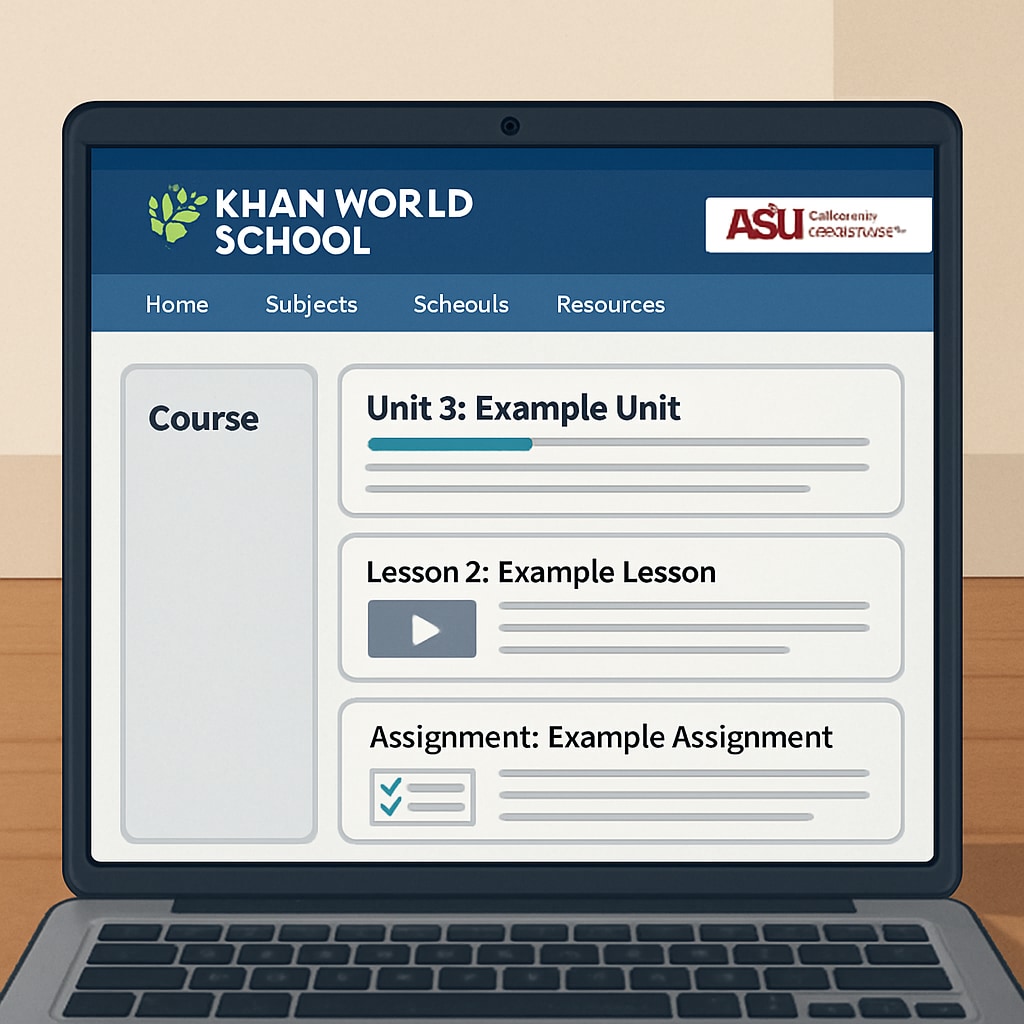The collaboration between Khan World School and Arizona State University (ASU) creates a unique dual credit program specifically designed for high-achieving homeschool students. This innovative educational model allows learners to simultaneously earn high school and college credits through rigorous online courses. As homeschooling grows in popularity—with U.S. homeschool rates increasing by over 50% since 2016—such programs address the critical need for advanced academic pathways.

Academic Advantages of Dual Enrollment
This partnership offers three primary benefits for homeschool families:
- Cost efficiency: Students save thousands by completing college credits during high school. ASU estimates participants reduce typical bachelor’s degree costs by 25%.
- Curriculum alignment: Courses meet both high school graduation requirements and general education standards for college, verified through ASU’s accreditation.
- Learning flexibility: The program’s asynchronous structure accommodates varied schedules while maintaining academic rigor.
Implementation Challenges for Homeschoolers
While promising, the program presents notable considerations:
- Pace management: College-level coursework requires disciplined time management skills that some teens may still be developing.
- Socialization aspects: Unlike traditional dual enrollment at local colleges, the fully online format limits in-person peer interactions.
- Technical requirements: Stable internet and capable devices are mandatory for accessing ASU’s digital learning platforms.

Program Structure and Eligibility
The curriculum combines Khan Academy’s signature mastery learning with ASU’s collegiate framework. Students progress through:
- Foundation courses (Grades 9-10)
- College credit electives (Grades 11-12)
- Capstone projects demonstrating interdisciplinary competence
Admission requires standardized test scores at or above the 90th percentile, plus a portfolio showcasing academic work. Successful applicants typically demonstrate two grade levels of advancement in core subjects.
Long-Term Educational Impact
Early data suggests participants gain significant advantages:
- 93% earn at least 12 transferable college credits
- 82% maintain a 3.5+ college GPA in subsequent studies
- 67% complete bachelor’s degrees in under 3.5 years
However, education experts recommend evaluating each child’s emotional readiness alongside academic preparedness before enrollment.
Transition guidance: For families considering this pathway, we recommend starting with one dual credit course to assess fit before committing to a full schedule. The program’s flexibility allows customization based on individual student needs and goals.


